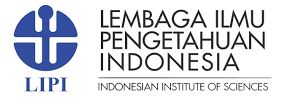Analisis Putusan Mahkamah Konstitusi Nomor 60/PUU-XXII/2024 terhadap Hak Politik dalam Perspektif Teori Kontrak Sosial
Abstract
Constitutional Court Decision No. 60/PUU-XXII/2024 changed the nomination mechanism for regional heads in Indonesia by canceling the nomination threshold provisions previously stipulated in Law No. 10 of 2016. The old provision required a political party or a coalition of political parties to win a minimum of 25% of the accumulated valid votes in the last general election to nominate a regional head pair. This requirement proved to limit the political participation of small parties that do not have seats in the Regional People’s Representative Council as well as independent candidates. With this new ruling, the Constitutional Court determined that the nomination requirement should be adjusted to the percentage of valid votes calculated based on the number of residents registered in the Permanent Voters List in each region, which better reflects political representation. This study aims to analyze the legal implications of the Constitutional Court’s decision No. 60/PUU-XXII/2024 on the political rights of regional communities. Through a legal research method using a statutory approach, conceptual approach and case approach, this research seeks to explain how the decision can expand political participation and improve representation in the regional head election process. In the context of social contract theory, this decision reflects a reinterpretation of the relationship between the state and citizens in terms of political participation. The state, through the Constitutional Court, demonstrates its commitment to protecting the political rights of its citizens by abolishing threshold provisions that are considered exclusionary. Thus, small parties and independent candidates have a greater opportunity to compete fairly, thereby expanding political representation and improving the quality of local democracy. These implications are expected to have a positive impact on Indonesia’s overall political dynamics.
___
Referensi
Buku dengan penulis:
Anstey, P. R. (2011). John Locke and Natural Philosophy, Oxford: Oxford University Press.
Forster, G. (2005). John Locke’s Politics of Moral Consensus, Cambridge: Cambridge University Press.
Peter Mahmud Marzuki, P. M. (2016). Penelitian Hukum, Jakarta: Kencana.
Qvortrup, M. (2004). The Political Philosophy of Jean-Jacques Rousseau: The Impossibilty of Reason, Manchester: Manchester University Press.
Artikel jurnal:
Alhadar, S., Sahi, Y., & Katili, P. P. (2024). Penguatan Demokrasi dan Pemilu Bagi Pemilih Pemula Menjelang Pemilihan Umum Tahun 2024:(Studi Pengabdian Pada Mahasiswa Universitas Nahdlatul Ulama Gorontalo). Community Development Journal: Jurnal Pengabdian Masyarakat, 5(1), 1115-1123. https://doi.org/10.31004/cdj.v5i1.25097
Alrah, Z. (2022). Kontrak Sosial dalam Pandangan Rousseau, Paradigma: Jurnal Kalam dan Filsafat 1(1), 1-14. https://doi.org/10.15408/paradigma.v1i01.27289
Bawamenewi, A. (2019). Implementasi Hak Politik Warga Negara, Jurnal Warta, 61(1), 43-56. https://doi.org/10.46576/wdw.v0i61.434
Benhabib, S. (2022). Thomas Hobbes on my Mind: Leviathan, Thomas Hobbes, Social Research: An International Quarterly, 89(2), 233-47. https://doi.org/10.1353/sor.2022.0015
Catlin, G. E. (1967). Thomas Hobbes and Contemporary Political Theory. Political Science Quarterly, 82(1), 1-13. https://doi.org/10.2307/2147297
Chong, A. (2005). Classical realism and the tension between sovereignty and intervention: constructions of expediency from Machiavelli, Hobbes and Bodin. Journal of International Relations and Development, 8(3), 257-286. https://doi.org/10.1057/palgrave.jird.1800055
Golubev, I. S. (2023). The State-Society syncretism in Thomas Hobbes’ theory of social contract. News of Saratov University. Ser. Philosophy, psychology, pedagogy, 23(3), 258-261. https://doi.org/10.18500/1819-7671-2023-23-3-258-261
Jailani, M., Mualipah, D. S., & Zainuddin, M. (2021). Analisis Tanggung Jawab Negara dalam Memberi Jaminan Perlindungan Hak Sipil dan Politik di Indonesia, Jurnal Risalah Kenotariatan 2(2), 94-106. https://doi.org/10.29303/risalahkenotariatan.v2i2.45
Mustawa, M., Hamid, A. H., & Purwanda, S. (2022). Refund of State Financial Losses in Realizing the Welfare State of Law. Amsir Law Journal, 4(1), 51-61. https://doi.org/10.36746/alj.v4i1.125
Noone, J. B. (1970). The Social Contract and the Idea of Sovereignty in Rousseau, The Journal of Politics 32(3), 696-708. https://doi.org/10.2307/2128837
Nuna, M., & Moonti, R. M. (2019). Kebebasan Hak Sosial-Politik dan Partisipasi Warga Negara dalam Sistem Demokrasi di Indonesia, Jurnal Ius Constituendum, 4(2), 110-127. http://dx.doi.org/10.26623/jic.v4i2.1652
Purwanda, S. (2020). The Existence of the Right to Books for Frontier, Outermost and Disadvantaged Regions as Part of the Right to Enjoy Education. JL Pol'y & Globalization, 95, 42. https://doi.org/10.7176/JLPG/95-07
Purwanda, S., Ambarwati, A., Darmawati, D., & Prayudi, P. (2024). Haluan Kesejahteraan Sosial dalam Diskursus Teori-Teori Keadilan. Dinamika Hukum, 25(1), 152-161. https://doi.org/10.35315/dh.v25i1.9819
Purwanda, S., & Wulandari, A. S. R. (2023). Socio-Legal Studies: Methodical Implications of Legal Development in Indonesia. Al-'Adl, 16(2), 152-163. http://dx.doi.org/10.31332/aladl.v16i2.6129
Raia, P. (2015). Thomas Hobbes and the Politics of Nature and Artifice, Hobbes Studies, 28(1), 1-2, https://doi.org/10.1163/18750257-02801001
Ritchie, D. G. (1891). Contributions to the History of the Social Contract Theory, Political Science Quarterly, 6(4), 656-676. https://doi.org/10.2307/2139203
Samidi, R., & Suharno, S. (2018). Konseptualisasi Hak-Hak Politik dalam Sejarah Periodesasi Demokrasi, JPPUMA Jurnal Ilmu Pemerintahan dan Sosial Politik Universitas Medan Area, 6(2), 132-146, https://doi.org/10.31289/jppuma.v6i2.1895
Simmons, A. J. (1989). Locke's state of nature. Political Theory, 17(3), 449-470. https://doi.org/10.1177/009059178901700300
Wahyudi, M. N. (2022). Teori Kontrak Sosial (Studi Komparasi Teori Politik menurut Imam Al-Mawardi, Thomas Hobbes dan John Locke), An-Nawa: Jurnal Studi Islam, 4(2), 113-125. https://doi.org/10.37758/annawa.v4i2.504
Wicaksono, A. S. (2022). Perbandingan Kontrak Sosial John Locke dan Thomas Hobbes. Adalah, 6(2), 89-97. https://doi.org/10.15408/adalah.v6i2.25075
Wijaya, D. N. (2016). Kontrak Sosial menurut Thomas Hobbes dan John Locke, Jurnal Sosiologi Pendidikan Humanis, 1(2), 183-193. https://doi.org/10.17977/um021v1i22016p183
Yao, N. (2024). The Constructive Aspect of Locke’s Social Contract Theory, Science of Law Journal, 3(2), 109-115. https://doi.org/10.23977/law.2024.030216
Zhang, Y. (2024). An Analysis of Social Contract Theory: Based on a Comparative Analysis of Hobbes, Locke and Rousseau. Journal of Sociology and Ethnology, 6(2), 120-126. https://doi.org/10.23977/jsoce.2024.060218
World Wide Web:
Annisa, A. (2024). Keputusan Mahkamah Konstitusi Terkait Pilkada 2024. Tersedia secara online dari: https://fahum.umsu.ac.id/keputusan-mahkamah-konstitusi-terkait-pilkada-2024/
CNN Indonesia. (2024). Poin-Poin Putusan MK Soal Syarat Dan Usia Calon Kepala Daerah. Tersedia secara online dari: https://www.cnnindonesia.com/nasional/20240820162912-12-1135392/poin-poin-putusan-mk-soal-syarat-dan-usia-calon-kepala-daerah
Perludem. (2024). Putusan MK Nomor 60/PUU-XXII/2024 Tentang Ambang Batas Pencalonan Kepala Daerah di Pilkada, Tersedia secara online dari: https://perludem.org/2024/08/28/putusan-mk-nomor-60-puu-xxii-2024/
Yuniarto, T. (2024). Pilkada Serentak 2024: Kontroversi Syarat Pencalonan Kepala Daerah. Tersedia secara online dari: https://kompaspedia.kompas.id/baca/paparan-topik/pilkada-serentak-2024-kontroversi-syarat-pencalonan-kepala-daerah






1.png)






.png)

















